#language
Text
Please reblog, I'm curious
18K notes
·
View notes
Text
When I graduated high school my folks decided to go on a family trip to Europe. I was extremely surly about this as I had an undiagnosed UTI but I was extremely excited to speak German with native speakers, convinced I would be an asset to my family across our travels.
Tragically, it was immediately apparent that three years of public school German meant I could communicate at the level of a first grader.
I was nonetheless elated when a child approached me at the train station to ask “Haben sie ein Kuli?” “Do you have a pen?” I was able to say, “Nein, aber ich habe ein Bleistift!” “No, but I have a pencil!” The kid seemed confused by my triumphant tone but borrowed my pencil anyway.
But my absolute greatest victory in vocabulary came during an airline check. They had me go through a metal detector, and they assumed my belt had set it off. I knew my belt was non reactive metal but! My favorite jeans had lost their zipper and I had them safety pinned shut.
The man approached me with a metal detector and seemed puzzled my belt wasn’t reading. I remembered the safety pin in the front of my jeans and I happened to know the word so I joyously announced, “Ich habe ein Sicherheitsnadel!” “I have a safety pin!”
As if to an infant, the man said slowly, “Nein, das ist sein Gürtel.” “No, that is your belt.”
I waved at my crotch and insisted, “Nein, in mein Hose ich habe ein Sicherheitsnadel!” “No, in my pants I have a safety pin!”
I couldn’t remember the name for zipper but luckily he caught the shine of the metal where a zipper should be and finally realized why this crazy American teenager was gesturing to her crotch. He scanned his machine over the offending pin which pinged and he cleared me to go.
I marched off to board the plane in a glow of pride that I had gotten to use an obscure word and the poor man got to return to his day.
957 notes
·
View notes
Text
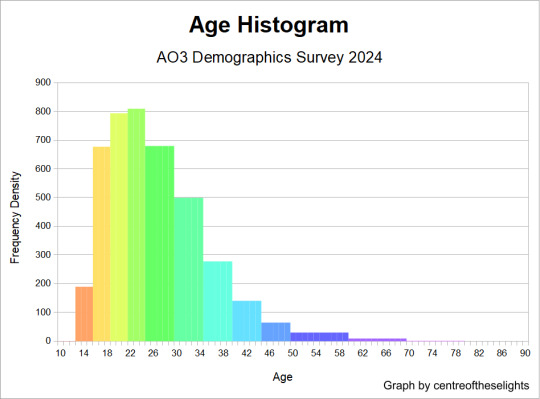
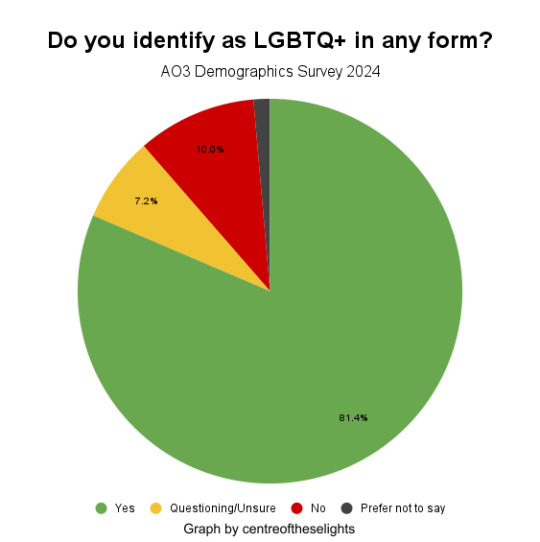
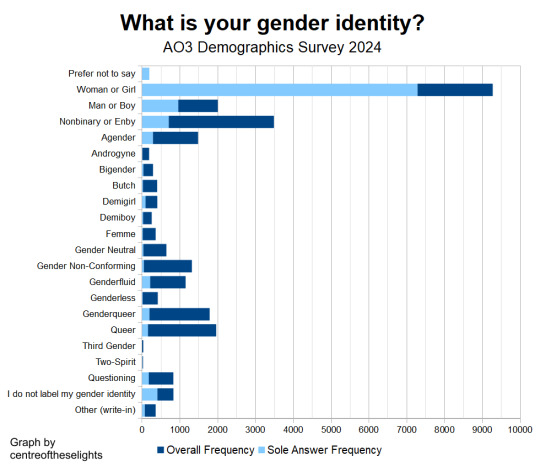
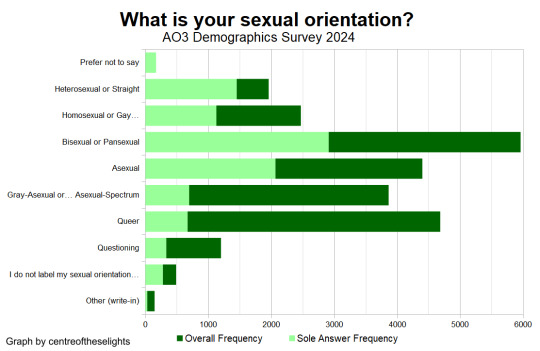
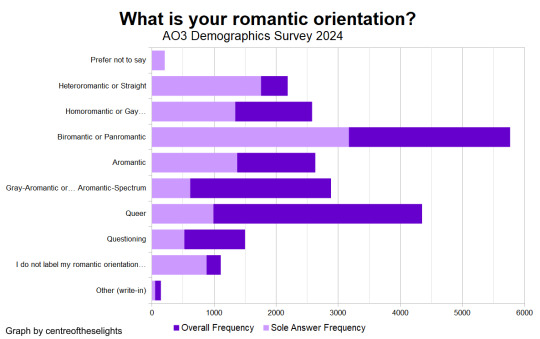

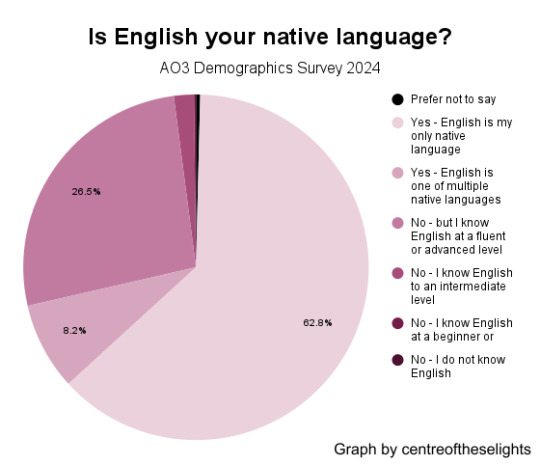
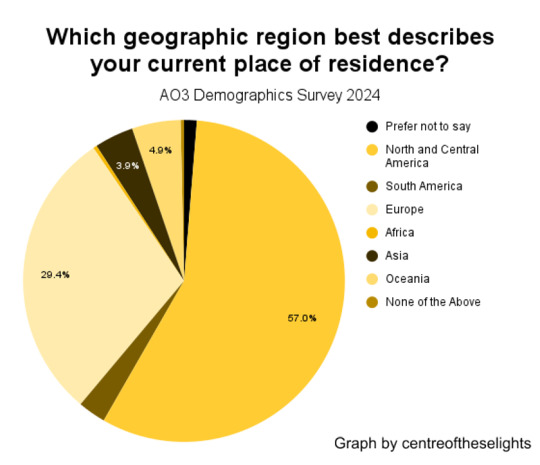
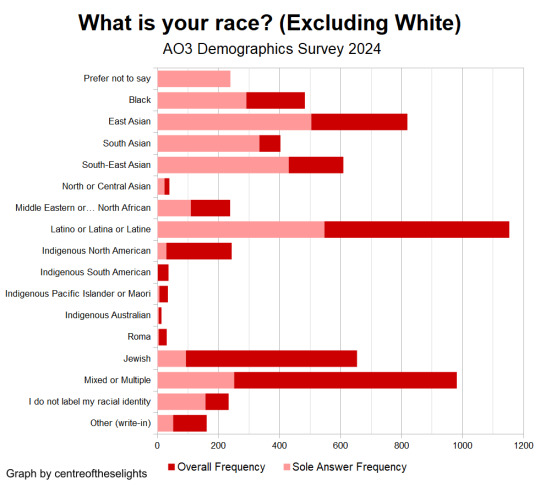
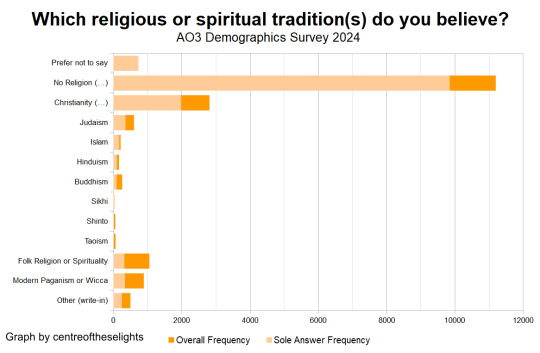
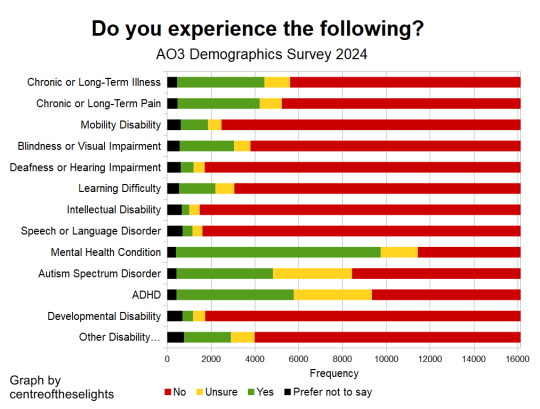
In case you missed it, these are just some of the graphs from the AO3 Demographics Survey 2024 - an unofficial demographics survey of 16,131 AO3 users.
You can find the first section of the results, including full transcriptions of all the data above, on AO3. The second section of the survey will begin posting results soon!
#demographics#survey#fan survey#survey responses#fan demographics#fan studies#fandom stats#fanfiction#archive of our own#ao3#age#gender#sexuality#race#religion#disability#language#location#lgbtq+#ao3 demographics survey 2024#survey results
312 notes
·
View notes
Text
Only in recent years have scientists found that not everyone has the sense of an inner voice – and a new study sheds some light on how living without an internal monologue affects how language is processed in the brain.
This latest study, from researchers at the University of Copenhagen in Denmark and the University of Wisconsin-Madison in the US, also proposes a new name for the condition of not having any inner speech: anendophasia.
This is similar to (if not the same as) anauralia, a term researchers coined in 2021 for people who don't have an inner voice, nor can they imagine sounds, like a musical tune or siren.
Continue Reading.
297 notes
·
View notes
Text
“goy” is not a slur.
goy is the hebrew word for “nation.” it’s a neutral term that can have both positive and negative connotations. it simply means non-jewish; as in all the other nations (goyim) that are not the jews. (in general, non-jews who are offended by being called a goy are usually also offended by jews who, for lack of a better word, live jewishly.)
yes, there are some ultra-religious jewish communities who feel negatively about “non-jewish ways of thinking”—and that mentality is the real issue, not the word. the word is in no way a slur, as it doesn’t meet the technical requirements for it. the venn diagram of people who are offended by goy and those who think “jew” (as opposed to “jewish person”) is a negative term is basically a circle.
#on judaism#jumblr#antisemitism#jews of tumblr#jewblr#jewish culture is#jewish heritage#jewish literature#hebrew#yiddish#language#translation#jewish history
154 notes
·
View notes
Text
Make an Irish slasher movie call that shit Gaeil-gore
85 notes
·
View notes
Text




Ousmane Sembène, Caméra d'Afrique (African Cinema: Filming Against All Odds)
#quote#Ousmane Sembène#Ousmane Sembene#Sembène#Sembene#Africa#cinema#film#movies#Europe#colonialism#language#African cinema#Sembene Ousmane#Sembène Ousmane#sun#Senegal#film director
71 notes
·
View notes
Text

L'eau. ( Think of saying the English word "low," but with a soft “o.” )
Reminds me of being in freshman French language lab.
https://thelanguagenerds.com/
74 notes
·
View notes
Text

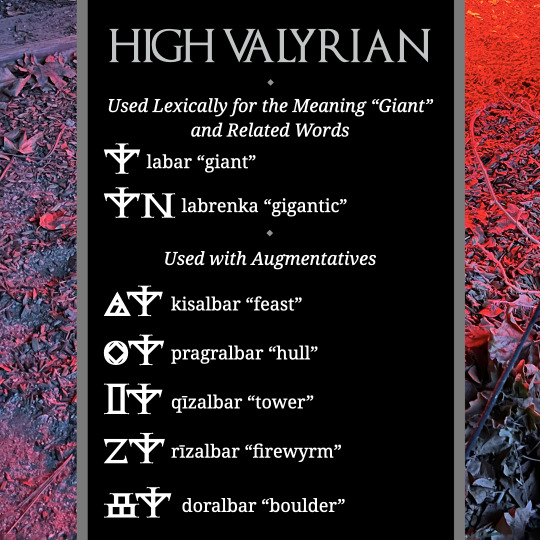
House of the Dragon season 2 coming. Time to post some more Valyrian glyphs. This one is the glyph for labar "giant". It got repurposed as an augmentative. I'm pretty happy with it. It was created quite recently, but it fits right in. Love it.
67 notes
·
View notes
Text
New open-access article from Georgia Zellou and Nicole Holliday: "Linguistic analysis of human-computer interaction" in Frontiers in Computer Science (Human-Media Interaction).
This article reviews recent literature investigating speech variation in production and comprehension during spoken language communication between humans and devices. Human speech patterns toward voice-AI presents a test to our scientific understanding about speech communication and language use. First, work exploring how human-AI interactions are similar to, or different from, human-human interactions in the realm of speech variation is reviewed. In particular, we focus on studies examining how users adapt their speech when resolving linguistic misunderstandings by computers and when accommodating their speech toward devices. Next, we consider work that investigates how top-down factors in the interaction can influence users’ linguistic interpretations of speech produced by technological agents and how the ways in which speech is generated (via text-to-speech synthesis, TTS) and recognized (using automatic speech recognition technology, ASR) has an effect on communication. Throughout this review, we aim to bridge both HCI frameworks and theoretical linguistic models accounting for variation in human speech. We also highlight findings in this growing area that can provide insight to the cognitive and social representations underlying linguistic communication more broadly. Additionally, we touch on the implications of this line of work for addressing major societal issues in speech technology.
54 notes
·
View notes
Text
Yes, you have an accent. Yes, even if you don't think you have an accent. Yes, even if your accent is the most bog-standard accent in your area.
Examples:
"Same country as mine but not my own accent" ex: I have a Geordie accent and I think the sexiest accent is Scouse. I have a Tyrolean accent and I think the sexiest accent is Viennese.
"Same language as mine but not the same country" ex: I speak English with a Brooklyn accent and, to me, the sexiest accent is Australian. I speak Metropolitan French and, to me, the sexiest accent is Quebecois French.
"Different language" ex: Someone from Italy is speaking Welsh to me, a Welsh speaker, with their Italian accent, and that is sexy to me.
48 notes
·
View notes
Text

𝐀𝐝𝐮𝐫𝐞
to burn completely, to calcine; to scorch, parch

#dark academia#light academia#litblr#langblr#english language#oxford english dictionary#words#spilled ink#spilled words#beautiful words#writers and poets#writing#creative writing#writeblr#writer#writers on tumblr#writerscommunity#resources for writers#writebrl#writing inspiration#writing advice#writing prompt#writing ideas#writing community#definition#vocabulary#vocab#language
31 notes
·
View notes
Text
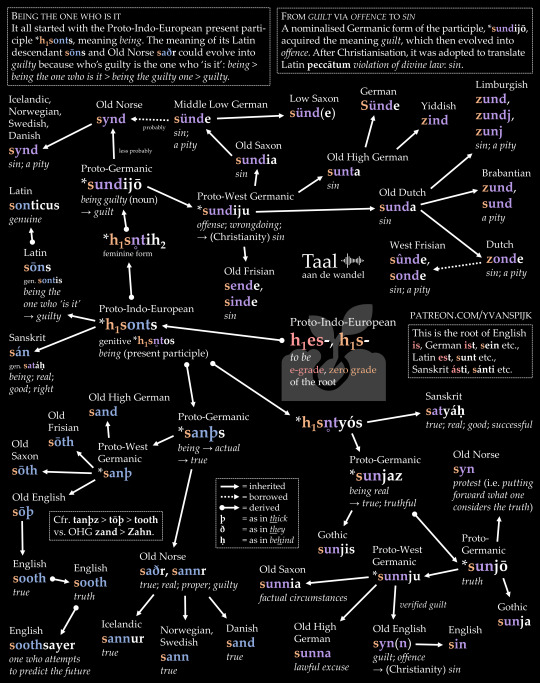
Sin, sooth, Sünde
Sin is distantly related to sooth. They stem from two different derivatives of a present participle meaning 'being'. German Sünde, Dutch zonde, and Scandinavian synd (all meaning 'sin') come from another derivative of this participle. Click the infographic to learn how it went.
#historical linguistics#linguistics#language#etymology#english#latin#dutch#german#old high german#old english#old dutch#old saxon#middle low german#low saxon#old frisian#west frisian#old norse#icelandic#danish#norwegian#swedish#gothic#proto-germanic#proto-west germanic#proto-indo-european
38 notes
·
View notes
Text
28 notes
·
View notes
Text
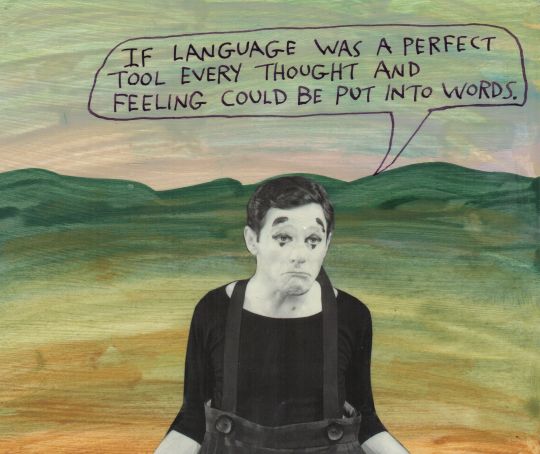
If language was a perfect tool every thought and feeling could be put into words. -- Michael Lipsey
29 notes
·
View notes
Text

58K notes
·
View notes